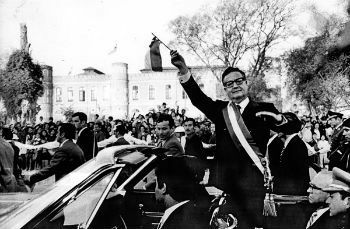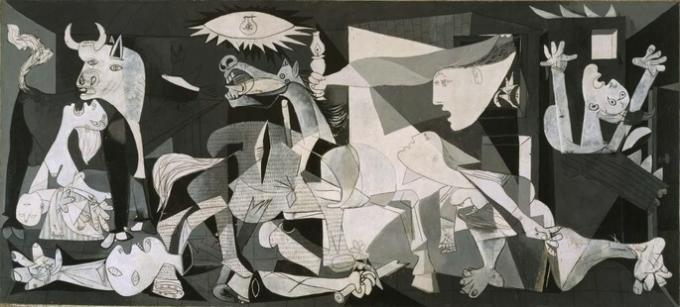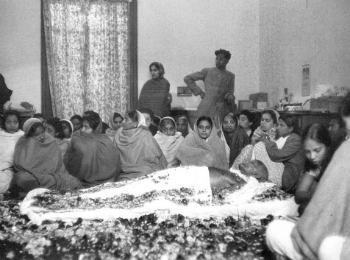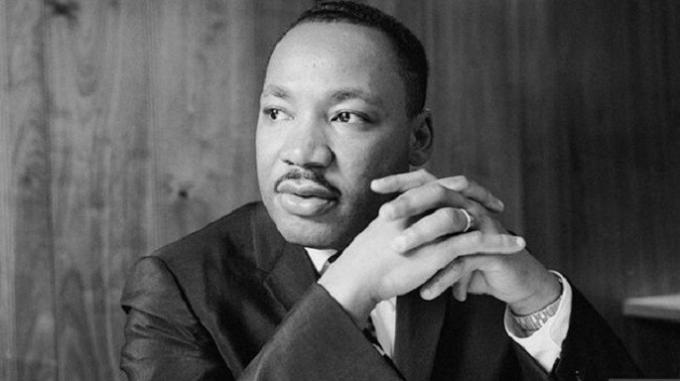Salvador Allende Gossens was a physician, politician and president of Chile from 1970 to 1973.
He was the first socialist to be elected president in the world and this has generated unrest in the US government and conservative forces in Chile.
His government ended with a coup d'état in 1973 when Allende preferred to commit suicide rather than having to surrender.
Biography
Salvador Allende was born on June 26, 1908 in Valparaíso, from an upper middle class family and renowned doctors.
In 1926 he goes to the capital Santiago to study medicine at the University of Chile. There, he became a student leader and opponent of the dictatorship of Carlos Ibañez (1927-1931).
Upon graduation, he works as a medical examiner and performs over 1500 autopsies. Allende would later declare that there he had come to know the Chilean misery and the evils for which the people died.
In 1933 he helped found the Socialist Party of Chile, in which he was a lifelong soldier.
In 1937 he runs and wins the elections for deputy. At just 30 years old, in 1939, he was appointed Minister of Health under President Pedro Aguirre Cerda (1938-1944).
He writes a book titled Chilean Medico-Social Reality warning about the problem of infant mortality in Chile and the precarious situation of the country's health system.
In 1940 he marries Hortensia Bussi, nicknamed La Tencha, with whom he would have three daughters. One of them, Isabel Allende Bussi, would follow in her father's footsteps and be a deputy and senator.
He was a presidential candidate on four occasions: 1952, 1958, 1964 and 1970. Last year he was elected by a leftist coalition, Popular Unity.
Thus was the first socialist president to come to power democratically, without resorting to arms as had happened with the Cuban revolution. I wanted to implement the Chilean socialist way "with empanada and red wine flavor”.
With the fear that new socialist governments could appear in Latin America, the US government allies itself with the Chilean right and the Armed Forces.
With this alliance, they plan to overthrow this democratically elected government and do so on September 11, 1973.
The president kept his promise not to resign and ended up killing himself inside the Palacio de La Moneda when it was attacked by the army.
know more about Socialism.

Salvador Allende parades through the streets of Santiago on the day of his inauguration.
Salvador Allende Government
Allende won the election with 36.6% of the vote. Even so, the result had to be ratified in Parliament where he would govern with the minority. From the moment of inauguration, the US plans to intervene and is even considering carrying out a coup d'état.
One of Allende's first acts was to nationalize copper, Chile's main export product. Likewise, it established that all children would have the right to half a liter of bed daily.
In foreign policy, Chile began to have diplomatic relations with all countries in the world, including those with a socialist orientation. It pushed for agrarian reform, but faced great resistance.
Nationalization of the financial and insurance sectors, foreign trade and sectors considered strategic such as energy, telecommunications and transport were sought.
The 1960s were one of poverty and political unrest in Chile. Left parties were encouraged by the experiences of Fidel Castro, in Cuba; and the USSR. Meanwhile, right-wing and conservative politicians sought to maintain their position within society.
Unlike other Latin American countries, the Chilean Armed Forces were little involved in politics. The coups that took place were carried out by civilians where the military had limited participation.
In 1970, General Scheneider, the Chilean chief of staff, had deeply democratic convictions, being assassinated four days before the full Parliament gave Salvador Allende inauguration.
After General Scheneider's death, General Carlos Prats assumes command, who also maintains the line of his successor in respecting the Chilean Constitution.
Internally, the different groups that made up the Popular Unity defend their views on a socialist government: the MIR (Revolutionary Izquierda Movement).
This one wanted the armed struggle and criticized the little Allende did to end bourgeois society.
On the other hand, there were the pessimists who thought it was not possible to implant socialism in a bourgeois government.
The US, ruled by the Republican Richard Nixon (1969-1974), block exports of spare parts and machinery to Chile.
In addition, they deny him credits and even sponsor the newspaper el mercury who does a series of reports condemning Salvador Allende's political reforms.
Read more about Cold War.
military coup and death

Bombing at the Palace of La Moneda, September 11, 1973.
In late 1972, a truck driver strike and middle class protests paralyzed the country. A boycott by Chilean producers and traders begins, which will extend throughout 1973 and will leave the population without basic products such as milk or meat. Naturally, a black market flourishes where the rich can buy these foods.
After an attempted coup against Allende in June 1973, General Prats resigns his post as commander-in-chief and appoints General Augusto Pinochet to replace him given his professional character and apolitical.
Supported by the right, the bourgeoisie and the Americans, General Pinochet then leads an attack on the capital where the presidential palace is besieged.
Allende refuses to leave and refuses all offers of asylum that are made by foreign nations. When the military invaded the place, he decided to end his life by shooting himself to death.
Days later, Pinochet installed the military dictatorship in Chile that would last until 1990.
Read:
- Greatest Dictators in History
- Condor Operation
- Cold War Questions



